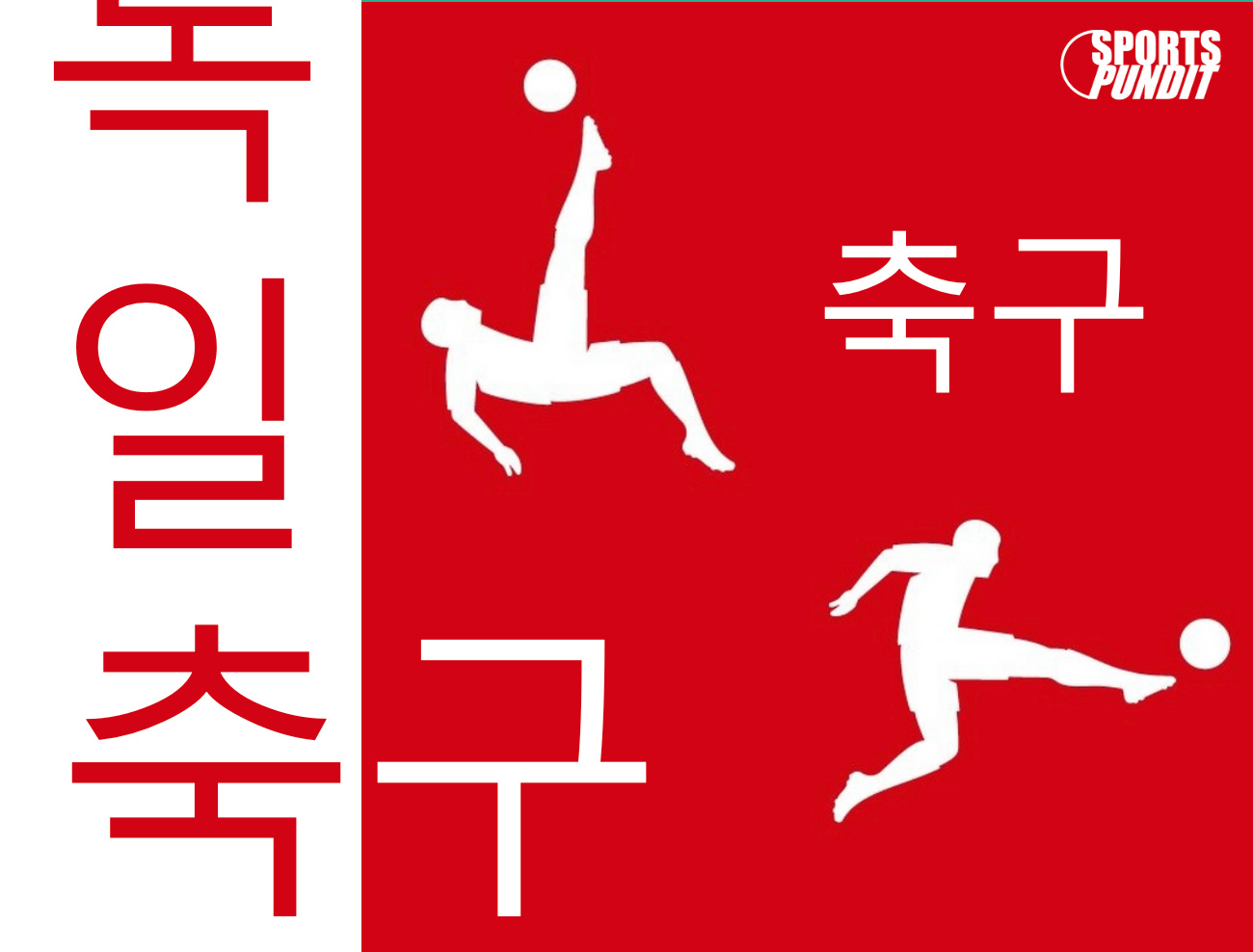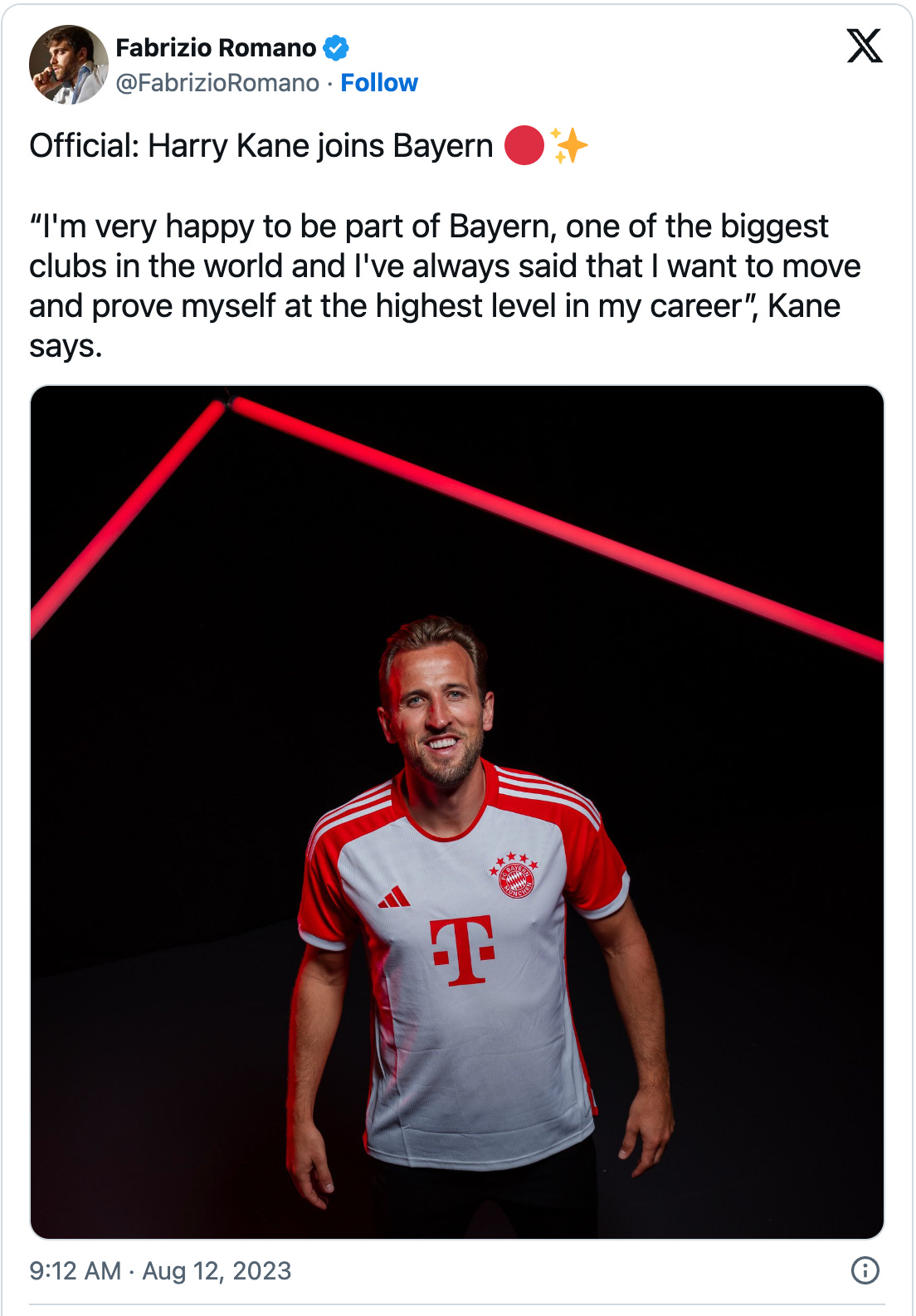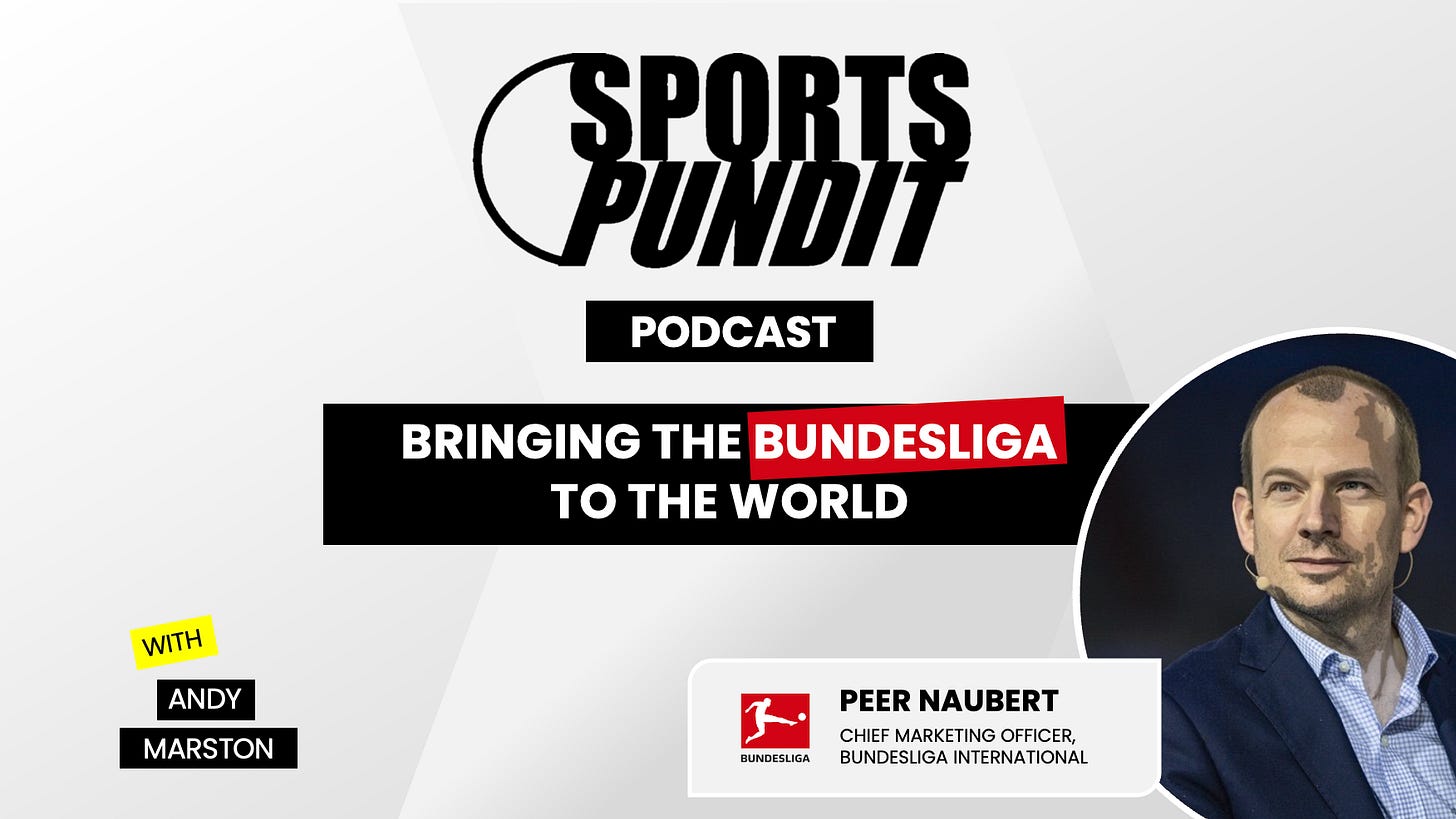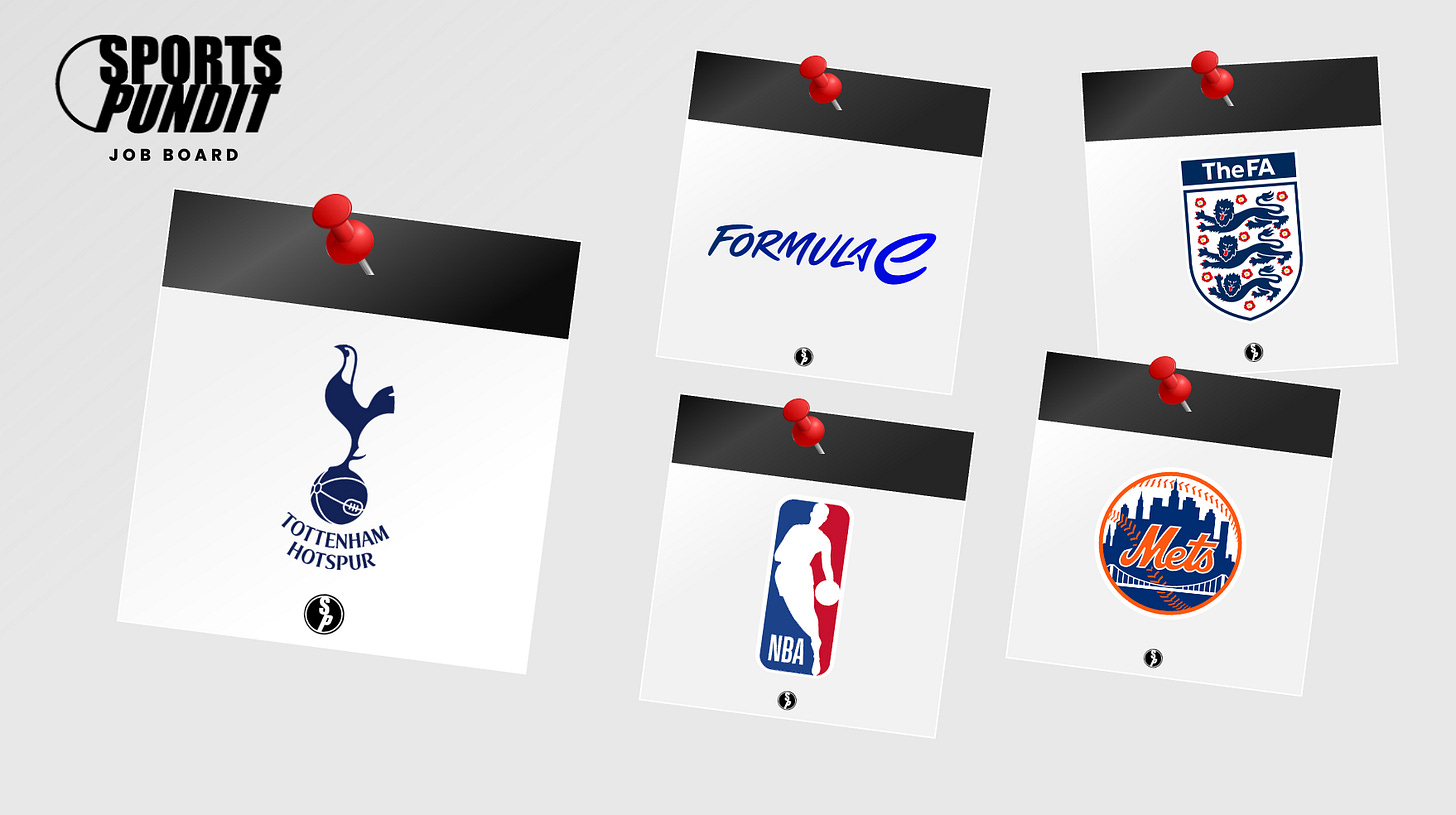Korea Advice: How the Bundesliga Aims to Take its Culture Global
While the Bundesliga can’t like-for-like replicate what Korea has done with K-pop, it’s interesting to explore the synergies of taking a strong product and using technology and pride to sell oneself
Not yet a subscriber? Join over 2,000 sports business leaders, from Formula 1 to the Premier League, that read Sports Pundit every week to get impactful industry insights.
BIG IDEA
The Big Idea is brought to you by the Global Institute of Sport!
The Global Institute of Sport is the leading destination for Master's degrees, executive education and professional qualifications in sport around the world.
They count world-famous stadiums and surrounding venues among their state-of-the-art campus facilities across the globe, including London's Wembley Stadium, Miami's DRV PNK Stadium and Melbourne Cricket Ground.
Ready to master the global sports industry? Enquire today about their in-person and online courses.
In an era where cultural exports are becoming increasingly crucial in global influence, South Korea stands out as a textbook case study for sport to follow.
As well as being incredibly tech-forward (think: Samsung, LG, Hyundai), the country has taken its culture around the world, from K-pop to cinema.
Hallyu, or the ‘Korean Wave’, signifies this global proliferation of K-culture, which has in many ways reshaped the global entertainment landscape, just look at the success of BTS, Squid Game, or Parasite.
For Peer Naubert, who spent some of his early professional years in the country, Korea’s success is great inspiration now that he is in the role of CMO at Bundesliga International and tasked driving fandom globally.
One area that stood out immediately to Naubert, back in 2005, was the integration of technology in daily life.
“Technology was much more at the centre of the daily life than it was in Western Europe or Germany back then,” he explained, speaking on the Sports Pundit Podcast. “I was taking the train to my workplace and people were watching TV on their mobile in 2005 in Korea already, which was not even close to possible in Germany back then.”
This digital savviness, which has been a cornerstone in Hallyu's spread, could equally provide a pathway for German football in expanding its own reach – and is certainly the aspiration at the core of hosting events such as the SportInnovation Summit, which recently concluded in Dusseldorf.
As well as technology, however, pride also plays an important role.
"Korean culture was very popular in Korea already, which is kind of obvious, but they were really proud of trying to sell that or to bring that abroad as well," he explained.
This sense of national pride, coupled with significant government support, has been instrumental for Korea.
Similarly, Bundesliga International aims to provide that support for its clubs in achieving their own global aspirations while also tapping into the national pride of the league, stoked by its unique membership structure.
“We have this rule that no one no individual nor Institutional investors can buy the majority of the voting chairs of a club, so each club of the Bundesliga and Bundesliga 2 belongs to the fans, and this is something which gives us still a certain bit of a football romantic culture.”
Naubert continued, “we don't touch [the] club brands and the club culture at all. That's a hundred percent with the clubs. What we do from a league perspective in terms of the centralised product [is…] try to create a platform on which all those clubs can shine, be it nationally through the centralised media product, but especially internationally [by] trying to help the clubs bring their stories and their brands are abroad.”
These are stories which become easier to tell when you have international star talent, talent like Korea’s Kim Min Jae or England captain Harry Kane, however, Naubert insists that the interest must be firstly driven by the product (on and off the pitch).
“Even before Harry Kane joined the Bundesliga, there was a pretty high interest rate from English football fans because I think the Bundesliga is something [that] a big chunk of the English fans are looking at a very positively [due to the 50+1 rule].”
“In addition to that, I think the average ticket price is very affordable [at] 26 euros, which makes it really accessible for everyone. [This] leads to a high four-digit, even five-digit, number of English fans coming over to German stadia each weekend, because it's more affordable to so.”
The introduction of star power then helps to accelerate this further.
Germany, like Korea, is already a strong exporter – a country synonymous with high quality, well-engineered products (see: Mercedes, Siemens, BMW, Volkswagen). The Bundesliga is another product fitting of the same high calibre description.
So, while the Bundesliga can’t like-for-like replicate what Korea has done with K-pop, it’s interesting to explore the synergies of taking a strong product and using technology and pride to sell oneself to the world.
A strategy which appears to be working well in its quest to become the second biggest football league in the world, though only time will tell…
Not yet a subscriber? Join over 2,000 sports business leaders, from Formula 1 to the Premier League, that read Sports Pundit every week to get impactful industry insights.
THE PODCAST
Want to hear more from my conversation with Peer?
We discuss Peer’s Journey to the Bundesliga, the arrival of England captain Harry Kane, the launch of Fortuna for All, appealing to the US soccer fan, the NFL and playing internationally, overcoming the language problem, and much much more.
Listen to the full podcast via the link below - and I’d love to hear what you think!👇
The Sports Pundit Social Club (SPSC) was designed to enable you to hang out with other readers (i.e. exceptional folk from across the industry) without the heavy cost that often goes with traditional sports industry events.
Last month, we hosted events in London and New York. To hear about upcoming events, join the WhatsApp group 👇
JOB BOARD
Marketing Executive, Premium - Tottenham Hotspur (London, UK)
Head of Business Management - The FA (London, UK)
Insight Manager - Formula E (London, UK)
Partner Marketing Specialist - National Basketball Association (NBA) (New York, US)
Executive Director, Loyalty Programming - New York Mets (New York, US)
Do you have a job you’d like to promote to the amazing readers of this newsletter? Email me 📩
The Big Idea is brought to you by the Global Institute of Sport!
The Global Institute of Sport is the leading destination for Master's degrees, executive education and professional qualifications in sport around the world.
They count world-famous stadiums and surrounding venues among their state-of-the-art campus facilities across the globe, including London's Wembley Stadium, Miami's DRV PNK Stadium and Melbourne Cricket Ground.
Ready to master the global sports industry? Enquire today about their in-person and online courses.













